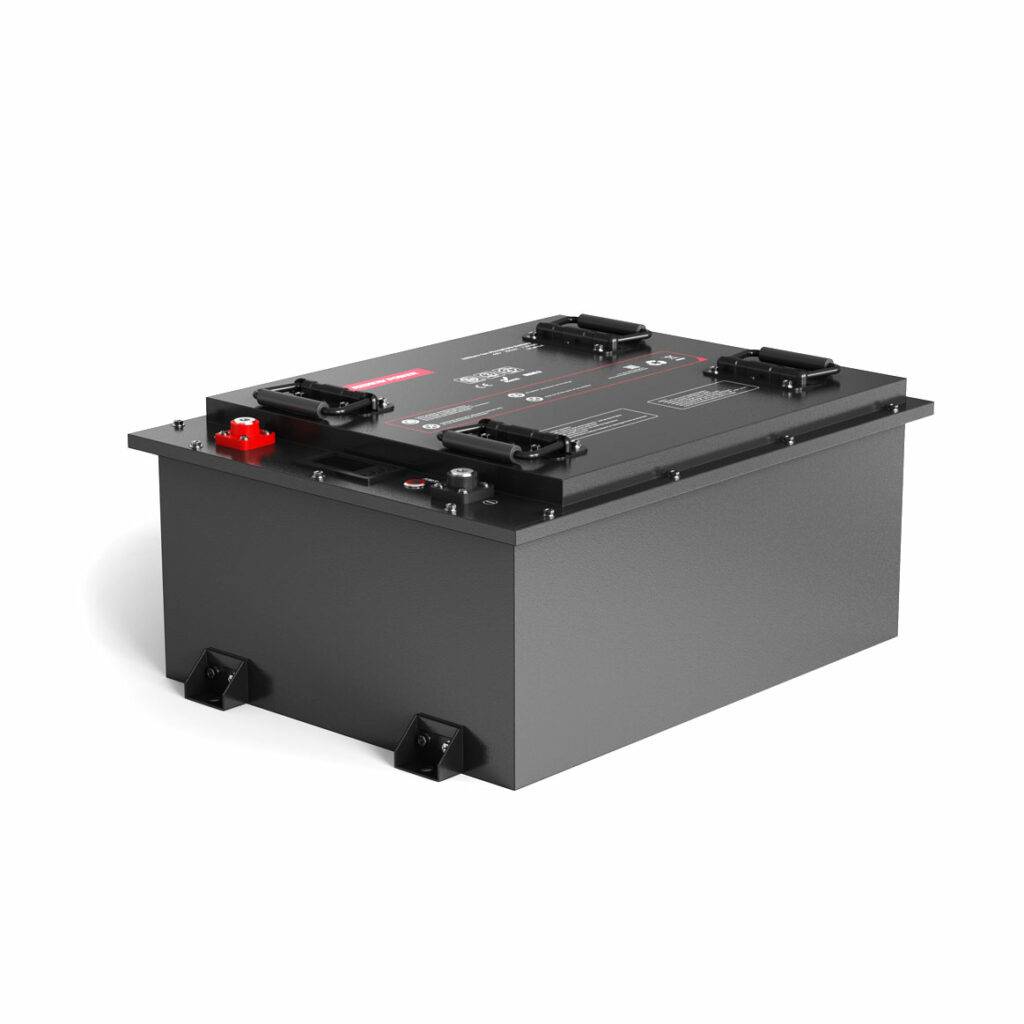Are you planning to store your RV for the winter months? If so, have you considered how to winterize your lithium RV batteries? As a crucial component of your RV’s electrical system, it’s essential to take proper care of them during the offseason. In this blog post, we’ll discuss what lithium RV batteries are and provide step-by-step instructions on how to winterize them. Plus, we’ll cover some pros and cons of using lithium batteries in your RV and give you tips on storing them properly during the cold months. So let’s get started!

#post_seo_title
What are lithium RV batteries?
Lithium RV batteries are rechargeable batteries that store energy in a lithium-ion chemical reaction. Compared to traditional lead-acid batteries, they have several key advantages. For one thing, they are much lighter and more compact, so you can fit more power into less space. They also last longer than other types of batteries, with some models offering up to 10 years of service life.
Another advantage of lithium RV batteries is that they charge faster and maintain their voltage better than lead-acid models. This means your battery will be ready to go when you need it – even if it’s been sitting dormant for months on end.
However, there are some downsides to consider as well. Lithium RV batteries tend to be more expensive upfront compared to traditional options like AGM or flooded-cell lead-acid varieties. Additionally, while rare, lithium-ion technology does pose a risk of thermal runaway under certain conditions.
Though, the benefits typically outweigh the drawbacks when it comes to choosing lithium RV batteries for your setup – especially if you’re looking for reliable long-term performance from your investment!
How do you winterize them?
Winterizing lithium RV batteries is crucial to ensure their longevity and efficiency. Here are some tips on how you can winterize your lithium RV batteries:
1. Charge the battery completely: Before storing your battery for the winter, make sure it’s fully charged. This will help prevent sulfation or damage to the battery.
2. Disconnect from power sources: Make sure that all electrical connections are disconnected before storing the battery. This includes disconnecting any solar panels or other power sources that may be connected to your RV.
3. Clean and inspect the battery: Clean off any dirt or debris on the surface of your lithium RV batteries before winter storage. Inspect for any signs of corrosion, cracks, leaks or damages that need repair.
4. Store in a dry place with regulated temperatures: It’s important to store your lithium RV batteries in a cool and dry location where they won’t freeze or overheat during extreme weather conditions.
5. Periodically check on stored batteries: Even when not in use, it’s recommended to periodically check on stored lithium RV batteries throughout the winter months to ensure they’re holding their charge properly.
By following these simple steps, you can properly winterize your lithium RV batteries and protect them against damage from cold weather conditions while ensuring peak performance come springtime!
Pros and cons of lithium RV batteries
Lithium RV batteries are a relatively new technology in the world of RVing. They offer several advantages over traditional lead-acid batteries but also come with some drawbacks. Here are some pros and cons to consider before deciding if lithium RV batteries are right for you.
One significant advantage of lithium RV batteries is their longer lifespan compared to lead-acid batteries. Lithium batteries can last up to ten years, while lead-acid typically lasts only two or three years. This means fewer battery replacements and less maintenance overall.
Another pro of lithium RV batteries is their lighter weight and smaller size. A typical 100-amp hour lithium battery weighs around 30 pounds, while a similar-sized lead-acid battery can weigh up to 80 pounds.
Lithium batteries also charge faster than traditional lead-acid ones, which means less time spent waiting for your battery bank to be fully charged.
However, there are some cons associated with using lithium RV batteries as well. One major drawback is the cost – they can be significantly more expensive than traditional lead-acid ones.
Additionally, not all charging systems may be compatible with lithium-ion technology without additional equipment or modifications being made.
It’s essential to note that these types of cells require specific care when it comes to temperature regulation and discharge rates; failure to do so could result in permanent damage or even fire hazards during winterizing procedures.
How to store your RV battery in the winter
Winter is coming, and it’s time to start thinking about how you’re going to store your lithium RV batteries during the colder months. Here are a few tips on how to keep your batteries safe throughout the winter season.
Firstly, it’s important that you clean off any dirt or debris from your battery before storing it away. This will prevent any moisture buildup which can cause damage to the battery over time.
Secondly, ensure that your battery is fully charged before storing it for an extended period of time. If left uncharged, lithium batteries have a tendency to discharge completely and become damaged beyond repair.
Thirdly, find a cool and dry place within your home or garage where you can store your RV battery safely. Avoid damp areas as this could lead to corrosion or rusting of metal parts inside the battery.
Consider investing in a high-quality storage cover for extra protection against dust and debris during storage. Remember that even though you may not be using your RV during winter months, proper care and maintenance of its components will ensure longevity and better performance when warmer weather arrives again in springtime!
How to troubleshootwinterizing your RV battery
Troubleshooting the winterization of your RV battery can be a daunting task, but it’s crucial to ensure that your battery stays in good condition during the colder months.
Firstly, make sure you have followed all the correct steps for winterizing your lithium RV battery. Check if there are any leaks or cracks in the battery case and replace it if necessary. You should also inspect all cables and connections to ensure there is no damage.
If you find that your lithium RV battery won’t hold its charge or doesn’t seem to function properly after winterizing, consider checking its state of charge using a voltmeter or multimeter. This will help identify any issues with how much power is being held by the battery.
Another common issue when troubleshooting winterized RV batteries is sulfation, which can occur when lead-acid batteries are left discharged over long periods of time. To prevent this from happening, ensure that you fully charge your lithium RV battery before storing it away for the winter.
Taking care to troubleshoot any issues with winterizing your lithium RV battery will help extend its lifespan and keep it functioning efficiently throughout each camping season.
Conclusion
Winterizing your lithium RV batteries is crucial to ensure that they remain in good condition during the colder months. By following the steps outlined in this article, you can protect your investment and enjoy uninterrupted power supply when it’s time to hit the road again.
Remember to always consult your RV manual and battery manufacturer’s instructions for specific guidance on how to winterize lithium RV batteries. Also, keep in mind that proper storage conditions are essential for maintaining the health of your batteries.
When done correctly, winterizing lithium RV batteries is a straightforward process that will save you from costly repairs or replacements down the line. So take care of your batteries before storing them away for winter, and rest easy knowing they’ll be ready for all of your adventures next season!


